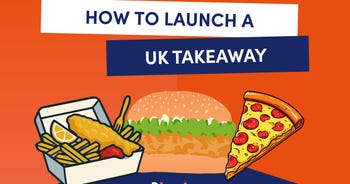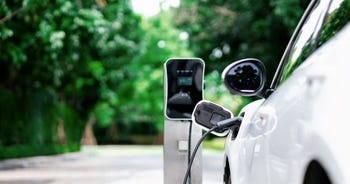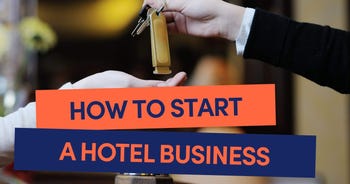An easy guide to claiming allowances and tax breaks in business
As a business owner, understanding what you are eligible for can be hard. It can be difficult to know about tax breaks, expenses and understand what you’re legally allowed to deduct. This guide will help you get to grips with business expenses.
What is a business expense?
A business expense is something that's vital to keep your company running from day to day. Each expense is deducted from your earnings, so you don’t pay tax on them.
For example, if you made £20,000 last year, but spent £4000 on allowable expenses, you would only be taxed on £16,000 as the £4,000 would be tax-deductible. An ‘allowable’ business expense can be anything from office supplies and company phone bills to essential travel.
As a business owner, you need to accurately record expenses on your income statement and keep track of them. They will then be subtracted from how much your business has made over the year. And, keeping accurate records of your expenses will make sure you don’t find yourself in trouble with HMRC for tax avoidance.
What’s the difference between a business expense and capital allowance?
While a business expense is usually something on a smaller scale — like stationary — capital allowance is a little different. Captial allowance typically refers to a larger item you purchase for the good of your business, for example, a new computer or office desk.

You will still have to prove that any capital allowance is necessary. You will also have to prove the item has ongoing benefits for the business and will last for longer than a year.
What can you claim as a business expense?
As we mentioned earlier, any expenses you claim must be necessary to your business and only certain things can be classed as an expense. Things like company phone bills, uniforms, office stationery and protective PPE clothing are covered, but there are so many other items that can be classed as tax-deductible. Some of these include:
Office, equipment and property
You can class things like stationery, equipment, office repairs and computer software as an expense, as well as the following:
- Bills — Including internet, landline, mobile, fax and office utility bills
- Printer ink and printing costs
- Postage and stamps
- Vital computer software — This includes if your business makes regular payments to renew licenses
- Office security
- Rent for office space
- Computer software your business uses for less than two years
- Repairs to office space and general maintenance
- Property insurance
Marketing, entertainment and subscriptions
Because marketing has the potential to attract new customers, you can claim the cost of marketing your business. Expenses in this category could include things like website maintenance, newspaper or magazine advertising, directory listings, and free samples for your customers.
Travel costs
If you’re regularly using a car or van for business, you can deduct your milage rate as an expense. Rather than working it out yourself, an easy way to get your head around milage is to have a look at HMRC’s Approved Mileage Allowance Payments. They have a specific rate per mile as a tax-deductible expense.
You can also claim other vehicle-related costs on your tax return, including:
- Petrol
- Any hire charges
- Any services that are needed
- Vehicle insurance
- Repairs
- Breakdown cover
You can also include travel by train, bus, plane or taxi in your tax deductions if the journey was essential for business. Hotel rooms and meals during business trips also count as long as they are ‘reasonable.’
Although travel for meetings or vital training days is also included, you can’t claim the cost of simply travelling between home and work. Any regular commuting to the office won’t count. It's important to note that if you take a trip for personal and business reasons, you’ll need to separate the business cost to be able to deduct tax.
Clothing (uniforms, costumes or PPE)
The cost of essential clothing — including uniforms, costumes and PPE — can be included as tax-deductible if it's required to wear to run the business. Keep in mind you can’t include everyday clothing that you just happen to wear to work.
Staff costs
Your staff’s salaries count as allowable expenses too. So do any bonuses, company pension contributions, benefits, National Insurance contributions and training courses for your employees.
Legal and finance
You can include any professional business help as an expense too. For example, if you hire an accountant, a solicitor or a contractor to work with your business, you can submit their services as an expense. You may also include any bank, overdraft, and credit card charges as well as any interest on business loans and leasing agreements.
Reselling goods
You are able to submit any stock your business needs as an expense as well as any necessary materials you need to keep your business running smoothly. You will also be able to include any costs from producing goods yourself as an expense.
What can’t you claim as an allowable expense?
If you’re still not sure what is considered an ‘allowable’ expense, just think ‘is this item necessary for my business?’
All expenses must be “wholly and exclusively” needed by your SME to be tax-deductible, according to HMRC. This just means the item or service must be used for your business or when trying to attract more customers.
So, although there are a lot of items that you can deduct, there are many examples of things you can’t claim for. You won't be able to claim expenses if you don’t meet HMRC’s criteria. Keep in mind you can only deduct tax from staff costs if they work within your business. For example, you can claim for an assistant or a secretary, but not for a cleaner.
Another thing to remember is how you define ‘necessary.’ For example, although entertaining clients may seem vital, it’s not needed for your business to keep running. Yes, you might be able to gain more custom, but taking a client out for lunch would not be counted as tax-deductible. If you’re unsure about what you’re allowed to claim as an expense, you can always speak to a specialised accountant to be on the safe side.
What can you claim as a capital expense?
Capital expense is for larger items that aid your business in the long run such as maintaining or improving fixed assets like buildings, vehicles and equipment
These vital items are known as ‘plant and machinery.’ They are basically things your business couldn’t operate without. You can usually deduct the full cost of these items from your company profits before tax and they include things like:
- Equipment — Any equipment you need to keep your business afloat, if you were a handyman business, this would include things like hammers, screwdrivers and bulbs.
- Machinery — Any heavy-duty machinery you need, such as ramps for or specialised equipment for a local garage business
- Business vehicles — Any cars, vans or bikes you need to carry out your job. For example, if you’re a takeaway and operate a delivery service, then these vehicles would be covered
What is a tax break?
A tax break may seem like a daunting term, but it simply means to only pay tax on things you need to. It will be different for every business and many SMEs find they might be owed tax back. So, to find out what you’re entitled to, get in contact with HMRC.
What can you claim as a tax break?
A lot of the time, tax breaks pass SME owners by, because people don’t know much about them. Below are a few examples of things you can claim as a tax break.
Travel
To get a tax deduction, your travel must last longer than an ordinary workday and be for business purposes. As we said earlier, you can't claim a regular commute. So to qualify as a company trip, you need to have a specific business purpose planned and must carry out business activity while you’re there. 'Business activity’ can include things like finding new customers, training or meeting clients.
Make sure you keep accurate records and receipts for your business travel expenses. So, if you need to prove anything to HMRC, you have the records ready.
Subsistence tax relief
When talking about subsistence, we usually mean the basics humans need to survive. So this would include food, water and accommodation.
As a general rule, food isn't included as an expense. This is because it’s not something you just do at work. But there are a few exceptions. If you must do go somewhere for work that’s out of your usual routine, for example, if you are sent on a compulsory training weekend, you could possibly claim for the food and drink whilst you’re there. You would just need to make sure your meals were considered ‘reasonable’ and not unnecessarily extravagant.
Subsistence would also cover reasonable accommodation costs if you had to stay away from home outside of your normal working hours.
Working from home
COVID-19 caused a lot of the UK to adapt to working from home and although there is tax relief available, it can get tricky when claiming for home offices.
As a rule, the cost of any workspace you use regularly for your business can be deducted as a home office expense but be prepared to prove any deductions to HMRC should they ask. If your working space occupies 25% of your home, then 25% of your electricity bill becomes tax-deductible as a result.
If you started a business from home, you will be able to include part of your home utility bills. You will need to sit and work out the proportion of your home that is used for business first though.
Pensions
You are allowed to reclaim tax on employee private pensions at the highest rate of tax they pay. Many SME owners will automatically get the 20% tax relief but if you are in the higher tax bracket, you have to claim any extra yourself.
How to claim a tax break
The way you can claim a tax break all depends on what kind of business you’re running. If you are a plumber and need to buy new supplies, then claiming a tax break is pretty clear cut. However, if you are a business just starting up from home, you run a café owner or you're a freelance graphic designer, then the rules become a little trickier to understand.
The simple thing to do is to ask yourself if the item you are deducting is "wholly and exclusively” for work. It’s a good idea to look at HMRC’s site for more information and complete their ‘see if I can claim’ assessment. They provide advice on a whole range of employment situations and their tax rules are updated regularly.
How to tell HMRC about your expenses
You will need to tell HMRC about any allowable expenses you have claimed when you complete your tax return each year.
If you want more information about your expenses then you can always contact the self-assessment general helpline for advice. You can also contact the digital assistant on the HMRC website to ask questions and get quick replies.
How Bionic can help take the stress out of business admin
Getting your head around tax breaks and expenses can be tough. You might not feel you have enough hours in the day to deal with your business admin and run your SME. Although we can’t sort out your taxes for you, the team at Bionic is here to help with all your business essentials. Whether that be searching for a better deal on business energy, insurance, phone and broadband.







